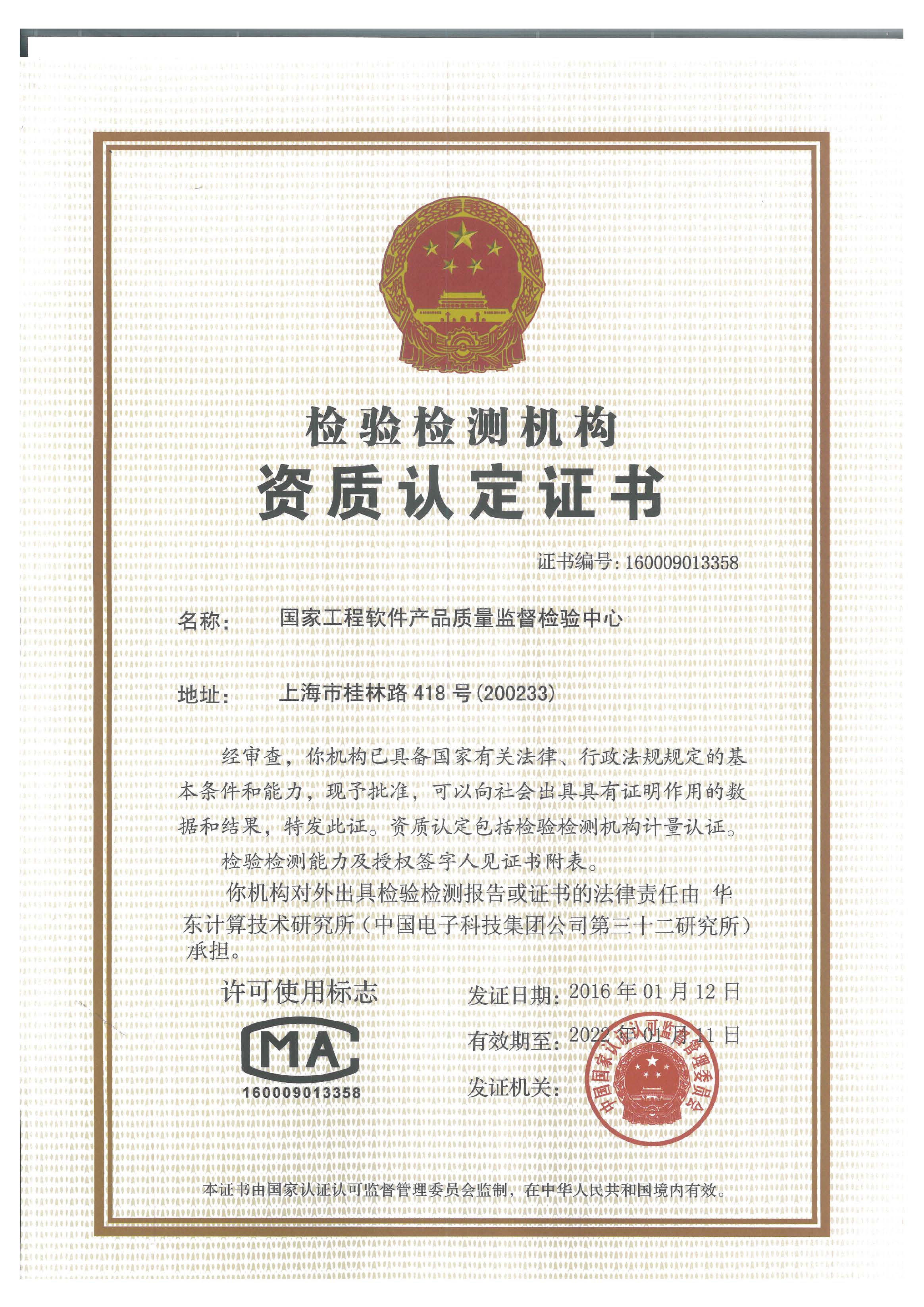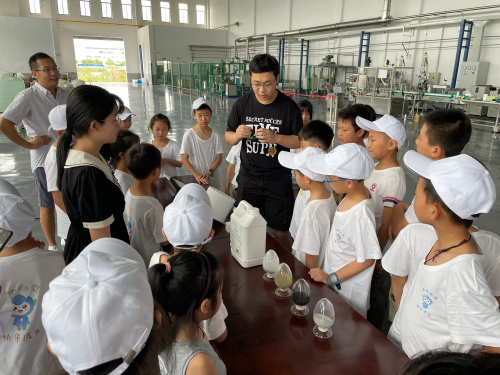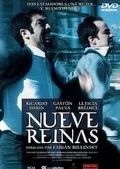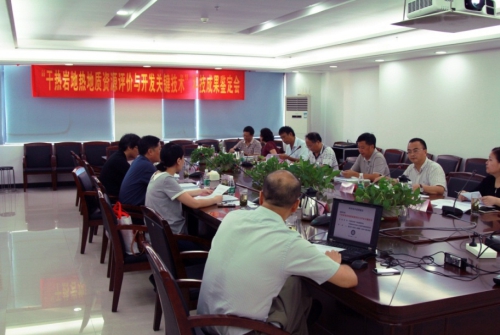【适用地区:广东、山东、湖北、江苏、河北、湖南、福建】
做题时,先将答案标在试卷上。录音内容结束后,你将有两分钟的时间将试卷上的答案转涂到答题卡上。
第一节 (共5小题;每小题1.5分,满分7.5分)
听下面5段对话。每段对话后有一个小题,从题中所给的A、B、C三个选项中选出最佳选项。听完每段对话后,你都有10秒钟的时间来回答有关小题和阅读下一小题。每段对话仅读一遍。
例:How much is the shirt?
A. £19.15. B. £9.18. C. £9.15.
答案是C。
1. Why did the woman go to Mallorca?
A. To teach Spanish.
B. To look for a job.
C. To see a friend.
2. What does the man ask the woman to do?
A. Take him to hospital.
B. Go to a class with him.
C. Submit a report for him.
3. Who will look after the children?
A. Jennifer. B. Suzy. C. Marie.
4. What are the speakers going to do?
A. Drive home.
B. Go shopping.
C. Eat out.
5. What are the speakers talking about?
A. How to fry fish.
B. How to make coffee.
C. How to remove a bad smell.
第二节 (共15小题;每小题1.5分,满分22.5分)
听下面 5 段对话或独白。每段对话或独白后有几个小题,从题中所给的 A、B、C 三个选项中选出最佳选项。听每段对话或独白前,你将有时间阅读各个小题,每小题 5 秒钟;听完后,各小题将给出 5 秒钟的作答时间。每段对话或独白读两遍。
听第 6 段材料,回答第 6、7 题。
6. When does Gomez watch a football game on TV?
A. When he fails to get a ticket.
B. When the stadium is crowded.
C. When his friends are too busy.
7. How much did Gomez pay for the football game last time?
A. $20. B. $25. C. $50.
听第 7 段材料,回答第 8 至 10 题。
8. What did Alex do in the afternoon?
A. He had a walk.
B. He went hunting.
C. He planted trees.
9. What did Alex bring back?
A. Flowers. B. Leaves. C. Books.
10. What was Bob doing when Alex saw him?
A. Fishing.
B. Taking pictures.
C. Swimming.
听第 8 段材料,回答第 11 至 13 题。
11. What did David do on his most recent holiday?
A. He had a boat trip.
B. He took a balloon flight.
C. He climbed a mountain.
12. What is on David's list?
A. Gifts he needed to buy.
B. Things he wished to do.
C. Dates he had to remember.
13. Where does the woman suggest David go for his next holiday?
A. Australia.
B. California.
C. The Amazon.
听第 9 段材料,回答第 14 至 17 题。
14. Why did Sarah make the phone call?
A. To ask a favor.
B. To pass on a message.
C. To make an appointment.
15. Where is Sarah now?
A. In Brighton.
B. At her home.
C. At the Shelton Hotel.
16. What time is Michael leaving his place tomorrow morning?
A. At 7:40. B. At 8:00. C. At 8:20.
17. What is the probable relationship between John and Sarah?
A. Neighbors.
B. Fellow workers.
C. Husband and wife.
听第 10 段材料,回答第 18 至 20 题。
18. What do most people think is very important in spoken communication?
A. Pronunciation.
B. Vocabulary.
C. Grammar.
19. Why should you listen to experts according to the speaker?
A. To develop your reading fluency.
B. To improve your note-taking skills.
C. To find out your misPronunciations.
20. What is the speaker's last suggestion?
A. Spell out the difficult words.
B. Check the words in a dictionary.
C. Practice reading the words aloud.
1.那女人为什么去马洛卡?
A.教西班牙语。
B.找工作。
C.去见朋友。
2.男人要求女人做什么?
A.带他去医院。
B.和他一起去上课。
C.为他提交一份报告。
3.谁来照顾孩子?
A.珍妮弗。B.苏西。C.玛丽。
4.演讲者要做什么?
A.开车回家。
B.购物。
C.出去吃饭。
5.演讲者在说什么?
A.如何煎鱼。
B.如何煮咖啡。
C.如何去除异味。
听第 6段材料,回答第 6、7 题。
6.戈麦斯什么时候在电视上看足球赛?
A.当他买不到票的时候。
B.当体育场拥挤的时候。
C.当他的朋友太忙的时候。
7.上次戈麦斯为足球赛付了多少钱?
答$20.B$25摄氏度$50
听第 7段材料,回答第 8至 10题。
8.亚历克斯下午做了什么?
A.他去散步了。
B.他去打猎了。
C.他种了树。
9.亚历克斯带了什么回来?
A.鲜花。B.树叶。C.书。
10.亚历克斯看到鲍勃时他在干什么?
A.钓鱼。
B.拍照。
C.游泳。
听第 8段材料,回答第 11至 13题。
11.大卫最近一次度假做了什么?
A.他乘船旅行。
B.他乘气球飞行。
C.他爬了一座山。
12.大卫的单子上有什么?
A.他需要买的礼物。
B.他想做的事。
C.他必须记住的日期。
13.那位女士建议大卫下次去哪里度假?
A.澳大利亚。
B.加利福尼亚。
C.亚马逊。
听第 9段材料,回答第 14至 17题。
14.莎拉为什么打电话?
A.请帮忙。
B.传递信息。
C.预约。
15.莎拉现在在哪?
A.在布莱顿。
B.在她家。
C.在谢尔顿酒店。
16.迈克尔明早什么时候离开家?
A.七点四十分。在8点。八点二十分。
17.约翰和莎拉之间可能的关系是什么?
A.邻居。
B.同事们。
C.夫妻。
听第 10段材料,回答第 18至 20题。
18.大多数人认为在口语交际中什么是非常重要的?
A.发音。
B.词汇。
C.语法。
19.为什么要听演讲者说的专家的话?
A.提高你的阅读流利性。
B.提高你的笔记技巧。
C.找出你的发音错误。
20.演讲者最后的建议是什么?
A.把困难的单词拼出来。
B.查字典里的单词。
C.练习朗读单词。
参考答案
1—5 CCBAC 6—10 ABABA
11—15 CBCAB 16—20 ACBCC
听力原文
(Text 1)
W: I was in Mallorca last week.
M: Oh, what were you doing there?
W: My best friend worked there. And I went to visit her. It was a good chance to practice my Spanish.
(Text 2)
M: Ruth, I've got this terrible cold and I have to see a doctor. I am afraid I can't go to the class. Could you help me hand in my lab report to Dr. Davidson?
W: Sure, no problem. Just take care of yourself and don't worry about the class.
(Text 3)
M: Marie, if no one takes care of your children while you're away, Jennifer and I will be glad to have them stay with us.
W: That's very kind of you. But they've already left for their Grandma's. You know, Suzy lives close by.
(Text 4)
M: Hurry up with your food, Sally. They say there's a big storm coming. We'd better get home before that.
W: Okay, I'm done. Let's get back to the car. Could you carry these shopping bags?
M: Oh, sure.
(Text 5)
M: We deep fried fish three days ago in the kitchen, but the unpleasant smell stays.
W: There is a method you can try. Every time you make coffee, dry the leftover coffee grounds and keep them in small bowls, then place the bowls in the kitchen.
(Text 6)
W:Are you a football fan, Gomez?
M: Yes, I go to the stadium whenever there’s a good game,and if I can’t get a ticket, I watch the game on TV.
That way, they are less exciting, though.
W: Is the ticket expensive?
M: It depends. It usually costs about 20 to 50 dollars. Last time I paid 25.
W: That’s not very expensive. Maybe we can go together some time.
M: Great! It’ll be more fun to watch a game with a friend.
(Text 7)
W:You were out the whole afternoon, Alex. What did you do?
M:I took a walk by myself.
W: You just kept walking and walking for four hours?
M: Actually, it’s not soboring. Walking in the woods is a grandadventure. Your feet cantake you to the most amazing places.
W: What did you do in the woods?
M: I smelled the flowers, looked at the birds, and yeah, I picked many tree leaves. I will make bookmarks with them. Look!
W: Aren’t they beautiful!
M:Then I met Bob at the lake. He was fishing while his kids were having a swim.
W: Did you talk to him?
M: No, I walked on and took a lot of pictures. There’sjust so much out there to see.
(Text 8)
W: David, how was your holiday?
M: Great, I climbed Mount Fuji. It was really beautiful. Now I can check one more thing off my list.
W: Your list?
M: Yes. When I was 12, I made a list of things I wanted to do some day.
W: That's interesting. How many of the things on your list have you done so far?
M: Almost half. I have pictures. Would you like to see them?
W: Yes, sure.
M: Here I am on top of Mount Fuji. And here I am in a hot air balloon.
W: When did you do that? I've always wanted to go up in a hot air balloon.
M: It was two years ago, in August, in California.
W: What are your plans for the next holiday?
M: I'm thinking of deep-sea diving in Australia. Do you have any other suggestions?
W: You really ought to take a boat down the Amazon. You'll see a lot of interesting animals and beautiful trees. It's one of the best places I've been to.
M: OK. I'll put it on my list.
(Text 9)
W: Hello, Michael.
M: Hi, Sarah.
W: Are you attending the conference tomorrow morning at the Shelton Hotel?
M: Yes. Are you?
W: Yeah, but when I arrived home five minutes ago, I found that my car wouldn't start. And John is in Brighton on business.
M: Do you know what's wrong with the car?
W: I'm not exactly sure. I think there is a problem with the engine. Err… I wonder if you could give me a ride to the hotel tomorrow morning.
M: Sure. When shall I be at your place?
W: Well, what about 8:00? From my place to Shelton, we have to drive through the quarters, so we'd better leave early to avoid the traffic.
M: OK. No problem. It takes twenty minutes to reach your place. So I'll set off at 7:40. By the way, do you also need me to drive you home tomorrow afternoon?
W: No, John will be back then, and he'll get me home. Thank you, Michael.
M: That's okay. See you tomorrow.
(Text 10)
W: Hello, everyone. Today I'll talk about how to improve your Pronunciation. Language researchers say Pronunciation and fluency are the biggest barriers, followed by grammar, in effective spoken English. However, most people don't regard Pronunciation as a very important part of communication skills. They're more focused on vocabulary. One reason is that most people are not even aware of their misPronunciations. So it's important to first find out the words you misPronounce. You should listen to experts, by experts, I mean those who are less likely to make Pronunciation mistakes. When listening to them, pay attention to words that sound strange, strange because you Pronounce the same words differently. When you come across such words, check a dictionary to confirm their exact Pronunciations. You can also search for difficult-to-Pronounce words and names, and make a list of them. The last suggestion is to read aloud. Now you've got the correct Pronunciations of the words, it's time to practice reading them every day.
(正文1)
W:我上周在马洛卡岛。
M:噢,你在那儿干什么?
W:我最好的朋友在那里工作。我去看望她。这是一个练习西班牙语的好机会。
(文本2)
M:露丝,我得了重感冒,得去看医生。恐怕我不能去上课了。你能帮我把实验室报告交给戴维森医生吗?
W:当然,没问题。照顾好自己,别担心上课。
(文本3)
M:玛丽,如果你不在的时候没有人照顾你的孩子,我和詹妮弗会很高兴让他们和我们住在一起。
W:你真是太好了。但他们已经去奶奶家了。你知道,苏西就住在附近。
(正文4)
M:莎莉,快点吃吧。他们说暴风雨要来了。我们最好在那之前回家。
W:好了,我说完了。我们回到车上去。你能帮我拿这些购物袋吗?
M:哦,当然。
(文本5)
M:我们三天前在厨房里炸过鱼,但是难闻的味道一直没有消失。
W:有一种方法你可以试试。每次煮咖啡时,把剩下的咖啡渣擦干,放在小碗里,然后把碗放在厨房里。
(文本6)
W:戈麦斯,你是足球迷吗?
M:是的,只要有好的比赛,我就去体育场,如果买不到票,我就在电视上看比赛。
这样一来,他们就不那么激动人心了。
W:票贵吗?
M:看情况。通常要20到50美元。 上次我付了25英镑。
W:那不是很贵。也许我们可以一起去。
太好了!和朋友一起看比赛会更有趣。
(文本7)
W:你整个下午都在外面,亚历克斯。你做了什么?
M:我一个人去散步。
W:你一直走啊走了四个小时?
M:其实,不是哭。在树林里散步是一次伟大的冒险。你的脚可以弯曲 你去了最神奇的地方。
W:你在树林里做了什么?
M:我闻了闻花,看了看鸟,是的, 我摘了许多树叶。我要用它们做书签。你看!
W:它们真漂亮!
M:然后我在湖边遇到了鲍勃。他在钓鱼,而他的孩子们在游泳。
W:你和他谈过了吗?
M:没有,我走过去拍了很多照片。就在那里 有那么多东西要看。
(文本8)
W:大卫,你假期过得怎么样?
M:太好了,我爬了富士山。真的很漂亮。现在我可以从清单上再查一件事。
W:你的单子?
M:是的。当我12岁的时候,我列了一张单子,上面写着我有朝一日想做的事情。
W:那很有趣。到目前为止,你清单上的事情做了多少?
M:差不多一半。我有照片。你想看他们吗?
W:当然可以。
M:我在富士山顶。我坐在热气球里。
W:你什么时候做的?我一直想乘热气球上去。
M:那是两年前的八月,在加利福尼亚。
W:你下个假期有什么计划?
M:我想去澳大利亚做深海潜水。你还有别的建议吗?
W:你真的应该乘船去亚马逊河。你会看到许多有趣的动物和美丽的树木。这是我去过的最好的地方之一。
M:好的。我会把它放在我的单子上。
(文本9)
W:你好,迈克尔。
M:嗨,莎拉。
W:你明天上午在谢尔顿饭店参加会议吗?
M:是的。你是吗?
W:是的,但是五分钟前我到家时,发现我的车发动不起来。约翰在布莱顿出差。
M:你知道这车怎么了吗?
W:我不太确定。我想发动机有问题。呃……我想知道你明天早上能不能载我去旅馆。
M:当然。我什么时候到你家?
W:那么,8点怎么样?从我家到谢尔顿,我们得开车穿过宿舍,所以我们最好早点离开以免交通堵塞。
M:好的。没问题。到你家要二十分钟。所以我7:40出发。顺便问一下,你明天下午还需要我开车送你回家吗?
W:不,约翰那时会回来,他会送我回家。谢谢你,迈克尔。
M:没关系。明天见。
(文本10)
W:大家好。今天我要谈谈如何提高你的发音。语言研究人员说,在有效的英语口语中,发音和流利是最大的障碍,其次是语法。然而,大多数人并不认为发音是沟通技巧的重要组成部分。他们更注重词汇。一个原因是大多数人甚至没有意识到自己的发音错误。所以首先找出你读错的单词是很重要的。你应该听专家的话,所谓专家,我指的是那些不太可能犯发音错误的人。在听的时候,要注意那些听起来很奇怪的单词,因为你对同一个单词的发音不同。当你遇到这样的词时,查字典确认它们的准确发音。您还可以搜索难发音的单词和名称,并列出它们的列表。最后一个建议是大声朗读。现在你已经掌握了单词的正确发音,是时候每天练习阅读了。
W: I was in Mallorca last week.
M: Oh? What were you doing there?
W: My best friend worked there, and I went to visit her. It was a good chance to practice my Spanish.
1. Why did the woman go to Mallorca?
A. To teach Spanish.
B. To look for a job.
C. To see a friend.
【解析】事实细节题。根据两人的对话,女士说上周在马略卡岛,男士问在那做了什么,女士回答最要好的朋友在那里工作,去看望了朋友,故选C。
M: Ruth, I’ve got this terrible cold, and I have to see a doctor. I’m afraid I can’t go to the class. Could you help me hand in my lab report to Dr. Davidson?
W: Sure, no problem. Just take care of yourself and don’t worry about the class.
2. What does the man ask the woman to do?
A. Take him to hospital.
B. Go to a class with him.
C. Submit a report for him.
【解析】事实细节题。根据男士的话“Could you help me hand in my lab report to Dr. Davidson?”可知,他想请女士帮忙提交实验室报告,故选C。
【点拨】正确选项C中的submit是对原文中hand in的同义转述。同义转述在高考英语听力的设置选项中经常使用,学生平时应注重积累高考高频词汇以及它们的近义和相似表达。
M: Marie, if no one takes care of your children while you’re away, Jennifer and I will be glad to have them stay with us.
W: That’s very kind of you. But they’ve already left for their grandma’s. You know, Suzy lives close by.
3. Who will look after the children?
A. Jennifer.
B. Suzy.
C. Marie.
【解析】推理判断题。女士回应孩子们已经去了他们的奶奶那里,接着说Suzy lives close by,可推知Suzy就是孩子们的奶奶。故选B。
【重点词句】leave for somewhere: 动身去某地
M: Hurry up with your food, Sally. They say there’s a big storm coming. We’d better get home before that.
W: OK, I’m done! Let’s get back to the car. Could you carry these shopping bags?
M: Oh, sure.
4. What are the speakers going to do?
A. Drive home.
B. Go shopping.
C. Eat out.
【解析】推理判断题。男士提议在暴风雨来临之前赶回家,女士表示同意,并且说赶快上车,可知他们将要开车回家,故选A。
M: We deep fried fish three days ago in the kitchen, but the unpleasant smell stays.
W: There’s a method you can try. Every time you make coffee, dry the leftover coffee grounds, and keep them in small bowls. Then, place the bowls in the kitchen.
5. What are the speakers talking about?
A. How to fry fish.
B. How to make coffee.
C. How to remove a bad smell.
【解析】主旨大意题。根据两人的对话,男士说三天前做了炸鱼,但难闻的气味依旧存在厨房中,女士提议让男士尝试一种消除异味的方法,故选C。
【点拨】正确选项中的a bad smell是对原文中the unpleasant smell的同义转述。另外对于主旨大意题,学生需要区分开主旨和细节信息,不要急于选到出现材料当中单词或短语的选项,要听完后抓住对话的核心内容再做决定。
W: Are you a football fan, Gomez?
M: Yes, I go to the stadium whenever there’s a good game, and if I can’t get a ticket, I watch the game on TV. (6) That way, they are less exciting, though.
W: Is the ticket expensive?
M: It depends. It usually costs about 20 to 50 dollars. Last time I paid 25.
W: That’s not very expensive. Maybe we can go together some time.
M: Great! It’ll be more fun to watch the game with a friend.
6. When does Gomez watch a football game on TV?
A. When he fails to get a ticket.
B. When the stadium is crowded.
C. When his friends are too busy.
【解析】事实细节题。根据男士(Gomez)的话“and if I can’t get a ticket, I watch the game on TV.”可知,如果男士买不到票,就会在电视上看足球比赛,故选A。
7. How much did Gomez pay for the football game last time?
A. $20.
B. $25.
C. $50.
【解析】事实细节题。根据男士的话“Last time I paid 25.”可知,上次看球赛花了25美元买票,故选B。
【点拨】看到题干中存在类似于how much,how many等针对价格或者数量提问的内容,要对听力材料中出现的数字重点关注,可以快速简单的记下每个数字对应的内容,即使考到数字计算题,也能从容应对。
W: You were out the whole afternoon, Alex. What did you do?
M: I took a walk by myself.
W: You just kept walking and walking for four hours?
M: Actually, it’s not so boring. Walking in the woods is a grand adventure. Your feet can take you to the most amazing places.
W: What did you do in the woods?
M: I smelled the flowers, looked at the birds, and yeah, I picked many tree leaves. I will make bookmarks with them. Look!
W: Aren’t they beautiful!
M: Then I met Bob at the lake. He was fishing while his kids were having a swim.
W: Did you talk to him?
M: No, I walked on and took a lot of pictures. There’s just so much out there to see.
8. What did Alex do in the afternoon?
A. He had a walk.
B. He went hunting.
C. He planted trees.
【解析】事实细节题。女士发现男士(Alex)一整个下午都在外面,问他做了什么,根据男士的回应 “I took a walk by myself.”可知,男士出去散步了,故选A。
9. What did Alex bring back?
A. Flowers.
B. Leaves.
C. Books.
【解析】事实细节题。根据男士(Alex)的话“I picked many tree leaves. I will make bookmarks with them. Look!”可知,男士在散步的时候捡了些树叶,并且说要用它们做书签,还展示给女士看树叶,说明已经把树叶带了回来,故选B。
10. What was Bob doing when Alex saw him?
A. Fishing.
B. Taking pictures.
C. Swimming.
【解析】事实细节题。根据男士的话“Then I met Bob at the lake. He was fishing while his kids were having a swim.”,在湖边遇到Bob的时候他正在钓鱼,故选A。
W: David, how was your holiday?
M: Great! I climbed Mount Fuji. It was really beautiful. Now I can check one more thing off my list.
W: Your list?
M: Yes, when I was twelve, I made a list of things I wanted to do someday.
W: That’s interesting. How many of the things on your list have you done so far?
M: Almost half. I have pictures. Would you like to see them?
W: Yes, sure.
M: Here I am on top of Mount Fuji. And here I am in a hot air balloon.
W: When did you do that? I’ve always wanted to go up in a hot air balloon.
M: It was two years ago, in August, in California.
W: What’re your plans for the next holiday?
M: I’m thinking of deep-sea diving in Australia. Do you have any other suggestions?
W: You really ought to take a boat down the Amazon. You’ll see a lot of interesting animals and beautiful trees. It’s one of the best places I’ve been to.
M: Okay. I’ll put it on my list.
11. What did David do on his most recent holiday?
A. He had a boat trip.
B. He took a balloon flight.
C. He climbed a mountain.
【解析】事实细节题。根据女士的话“David, how was your holiday?”和男士(David)的回答“I climbed Mount Fuji.”可知,男士假期爬了富士山,故选C。
12. What is on David’s list?
A. Gifts he needed to buy.
B. Things he wished to do.
C. Dates he had to remember.
【解析】事实细节题。根据男士的话“when I was 12, I made a list of things I wanted to do someday.”可知,他列了一张将来想做的事情的清单,故选B。
【点拨】正确选项中的things he wished to do是原文中things I wanted to do的同义转述。
13. Where does the woman suggest David go for his next holiday?
A. Australia.
B. California.
C. The Amazon.
【解析】事实细节题。根据女士的话“What’re your plans for the next holiday?”和男士的话“Do you have any other suggestions??”以及女士的回答“You really ought to take a boat down the Amazon.”可知,女士问男士的下次旅行计划,男士向女士寻求建议,女士推荐男士乘船南下到亚马逊河。故选C。
W: Hello, Michael.
M: Hi, Sarah.
W: Are you attending the conference tomorrow morning at the Shelton Hotel?
M: Yes. Are you?
W: Yeah, but when I arrived home five minutes ago, I found that my car wouldn’t start. And John is in Brighton on business.
M: Do you know what’s wrong with the car?
W: I’m not exactly sure. I think there is a problem with the engine. Er, I wonder if you could give me a ride to the hotel tomorrow morning.
M: Sure. When shall I be at your place?
W: Well, what about eight o’clock? From my place to Shelton, we have to drive through the Quarters, so we’d better leave early to avoid the traffic.
M: Okay. No problem. It takes twenty minutes to reach your place, so I’ll set off at 7:40. By the way, do you also need me to drive you home tomorrow afternoon?
W: No. John will be back then. And he’ll get me home. Thank you, Michael.
M: That’s okay. See you tomorrow.
14. Why did Sarah make the phone call?
A. To ask a favor.
B. To pass on a message.
C. To make an appointment.
【解析】事实细节题。根据女士(Sarah)的话“I wonder if you could give me a ride to the hotel tomorrow morning.”可知,女士给男士打电话是为了问他是否可以明天上午载她去酒店(开会),即寻求帮助,故选A。
【点拨】正确选项中的ask for a favor是对原文中I wonder if you could give me a ride to the hotel tomorrow morning简短的概述。
15. Where is Sarah now?
A. In Brighton.
B. At her home.
C. At the Shelton Hotel.
【解析】推理判断题。根据女士的话“but when I arrived home five minutes ago, I found that my car wouldn’t start.”以及男士和女士接下来的对话可知,男士明天早上八点钟去女士家中接她开会,可推知女士此刻极有可能在她自己家中,故选B。
【点拨】考生需要进行部分信息的整合及其推测,方可做对本题。
16. What time is Michael leaving his place tomorrow morning?
A. At 7:40.
B. At 8:00.
C. At 8:20.
【解析】事实细节题。根据男士的话“It takes twenty minutes to reach your place, so I’ll set off at 7:40.”可知,男士要花20分钟到达女士家中,他准备在7:40出发,故选A。
【点拨】题干中leaving his place是对原文set off 的同义转述。
17. What is the probable relationship between John and Sarah?
A. Neighbors.
B. Fellow workers.
C. Husband and wife.
【解析】推理判断题。根据女士的话“but when I arrived home five minutes ago, I found that my car wouldn’t start. And John is in Brighton on business.”以及“John will be back then. And he’ll get me home.”,可知女士的车子启动不了了,不巧此时John在布莱顿出差,以及女士后面提及John出差回来会接她回家,可推知,John极有可能是女士的丈夫,故选C。
【重点词句】attend a conference:参加会议
give sb. a ride:载某人一程
set off:出发
W: Hello, everyone. Today, I’ll talk about how to improve your Pronunciation. Language researchers say Pronunciation and fluency are the biggest barriers, followed by grammar in effective spoken English. However, most people don’t regard Pronunciation as a very important part of communication skills. They’re more focused on vocabulary. One reason is that most people are not even aware of their misPronunciations. So, it’s important to first find out the words you misPronounce. You should listen to experts. By experts, I mean those who are less likely to make Pronunciation mistakes. When listening to them, pay attention to words that sound strange. Strange because you Pronounce the same words differently. When you come across such words, check a dictionary to confirm their exact Pronunciations. You can also search for difficult-to-Pronounce words and names and make a list of them. The last suggestion is to read aloud. Now you’ve got the correct Pronunciations of the words. It’s time to practice reading them every day.
本段独白是一场演讲的内容,讨论了人们在口语交流技巧中更注重词汇,不太注重发音的原因,并且就发音不准确这一普遍现象提出几点改善的建议。干货满满,实用性强,是一篇不可多得的实用性材料。
18. What do most people think is very important in spoken communication?
A. Pronunciation.
B. Vocabulary.
C. Grammar.
【解析】事实细节题。根据独白中的“However, most people don’t regard Pronunciation as a very important part of communication skills. They’re more focused on vocabulary.”可知,大多数人不会将发音作为交流技巧的重要部分,反而更加注重词汇。故选B。
19. Why should you listen to experts according to the speaker?
A. To develop your reading fluency.
B. To improve your note-taking skills.
C. To find out your misPronunciations.
【解析】事实细节题。根据独白中的“You should listen to experts. By experts…Strange because you Pronounce the same words differently.”可知,我们听专家讲话是因为他们不太可能犯发音错误。听专家讲话时注意那些发音奇怪的单词,而发音奇怪的单词就是我们发音有误的单词。所以听专家讲话是为了发现自己的错误发音,故选C。
20. What is the speaker’s last suggestion?
A. Spell out the difficult words.
B. Check the words in a dictionary.
C. Practice reading the words aloud.
【解析】事实细节题。根据独白中的“The last suggestion is to read aloud. Now you’ve got the correct Pronunciations of the words. It’s time to practice reading them every day.”可知,最后一条建议是每天大声读这些单词,故选C。









